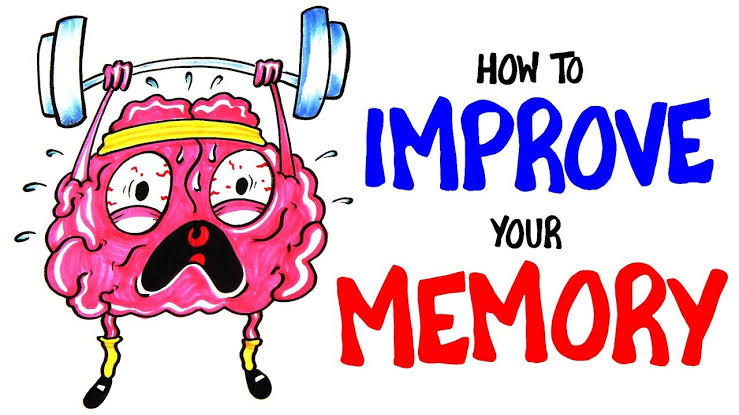Improving your memory doesn’t require complex techniques or expensive tools. With a few simple habits and mental exercises, you can enhance your memory retention and recall speed naturally. In today’s fast-paced world, where information overload is common, sharpening your memory can make you more productive, focused, and mentally alert. Here are effective, science-backed methods to improve your memory fast using strategies that are both easy to apply and sustainable.
Prioritize Quality Sleep Every Night
Your brain consolidates memory during sleep, especially deep and REM sleep stages.
- Aim for 7–9 hours of sleep every night to allow the brain to process and store new information.
- Avoid blue light from screens before bedtime to improve sleep quality.
- Develop a regular sleep routine—sleep and wake up at the same time daily.
Even a short period of sleep deprivation can significantly reduce your ability to recall things quickly.
Use Visualization Techniques
The brain responds well to images and associations. Visualization strengthens memory by connecting abstract information with vivid imagery.
- When learning something new, turn it into a mental picture.
- For example, visualize a grocery list by imagining the items as part of a story or a walk through your home.
- Use the “method of loci” where you associate information with physical locations in a familiar space.
This trick is often used by memory champions and is easy to apply in daily life.
Repeat and Recall Actively
Repetition builds long-term memory, especially when done actively rather than passively.
- Instead of rereading, try recalling information from memory without looking.
- Use flashcards, quiz apps, or simply close your eyes and try to remember key facts.
- Space out your repetition sessions (spaced repetition) to strengthen retention over time.
Practicing retrieval improves your brain’s ability to hold onto facts faster and longer.
Stay Physically Active
Regular movement has a direct positive impact on brain function and memory.
- Engage in aerobic exercises like brisk walking, jogging, or dancing at least 3–5 times a week.
- Exercise increases blood flow to the brain and helps in the growth of new brain cells.
- Even short 10-minute movement breaks during the day can boost memory and mental sharpness.
Physical activity also reduces stress and improves overall cognitive clarity.
Eat Brain-Boosting Foods
Your brain needs fuel to function properly, and the right foods can sharpen your memory.
- Eat more omega-3-rich foods such as salmon, walnuts, and chia seeds.
- Incorporate antioxidant-rich fruits like blueberries and vegetables like spinach.
- Avoid excess sugar, which is linked to memory impairment.
Drink enough water daily—dehydration can cause mental fatigue and forgetfulness.
Use Mnemonics and Acronyms
Mnemonics are tools that help you remember large chunks of information quickly.
- Create acronyms using the first letters of words you want to remember.
- Use rhymes or short songs to make lists or sequences easier to recall.
- Link new information with familiar names, places, or events.
These memory aids are especially useful for studying or remembering multiple steps.
Limit Multitasking and Stay Focused
Your brain performs best when it handles one task at a time.
- Avoid trying to memorize things while watching TV or scrolling through your phone.
- Find a quiet environment when trying to learn or remember something.
- Use short focus periods, like the Pomodoro technique (25 minutes of work, 5-minute break), to improve memory consolidation.
When you’re fully present, information is processed more efficiently and remembered longer.
Practice Mindfulness and Meditation
Stress and anxiety are major enemies of memory.
- Just 10 minutes of mindfulness meditation a day can reduce mental clutter and improve concentration.
- Deep breathing and mental relaxation enhance the brain’s ability to store and retrieve memories.
- Mindfulness teaches you to become more aware of your thoughts and surroundings, helping you remember things better.
It’s also a great tool for improving emotional balance, which benefits your mental clarity.
Challenge Your Brain Daily
Like muscles, your brain gets stronger the more you use it.
- Engage in brain-training activities like puzzles, crosswords, Sudoku, or chess.
- Learn a new skill or language to stimulate different parts of the brain.
- Try using your non-dominant hand for daily tasks or take a new route while walking.
These small but effective challenges enhance neuroplasticity—the brain’s ability to adapt and grow.
Stay Social and Engage in Conversation
Interaction and communication stimulate memory by forcing the brain to retrieve and process information quickly.
- Engage in group discussions or tell stories to friends or family members.
- Teaching others what you’ve learned is one of the most powerful ways to lock in memory.
- Participate in social or community activities to stay mentally and emotionally active.
Human connection also reduces loneliness and stress, both of which can impair memory.
Conclusion: Make Memory Training a Daily Habit
Improving your memory fast doesn’t mean rushing through exercises or overloading your brain. Instead, it’s about consistency and applying simple, proven strategies that help your brain work better. With quality sleep, physical activity, mental challenges, and mindful habits, your memory can become sharper within days. Incorporate these practices into your daily routine, and you’ll notice a boost in recall, learning ability, and mental focus—helping you perform better at work, school, and everyday life.



